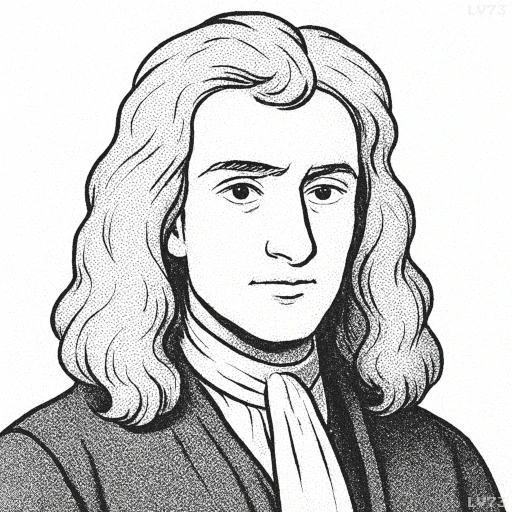“It may be that there is no such thing as an equable motion, whereby time may be accurately measured. All motions may be accelerated or retarded, but the true, or equable, progress of absolute time is liable to no change.”

- January 4, 1643 – March 31, 1727
- Born in England (UK)
- Natural philosopher, mathematician, physicist, astronomer, theologian
table of contents
Quote
“It may be that there is no such thing as an equable motion, whereby time may be accurately measured. All motions may be accelerated or retarded, but the true, or equable, progress of absolute time is liable to no change.”
Explanation
In this quote, Isaac Newton reflects on the nature of time and its measurement, expressing a nuanced view about the relationship between time and motion. He suggests that equable motion, or motion that progresses at a constant rate, might not exist in the real world as a reliable means of measuring time. In other words, while we often try to measure time by the motion of objects (like a clock or the Earth’s rotation), such motion is not truly uniform—it can be accelerated or retarded (slowed down) due to various factors, such as external forces or the nature of the object itself. However, Newton also posits the existence of absolute time, a conceptual, unchanging progression of time that is not affected by external influences or the motion of bodies within it. For Newton, this absolute time is constant and universal, independent of the physical world’s motions.
This idea is important in the context of Newton’s absolute space and absolute time theories, which he laid out in his Principia Mathematica. According to Newton, while we measure time through observable phenomena (like the motions of celestial bodies), absolute time flows steadily and is unaffected by these motions. This distinction between the relative and absolute nature of time would later be challenged and expanded by Einstein’s theory of relativity, which showed that time is not absolute and can be influenced by factors like gravity and velocity. Despite the later shift in understanding, Newton’s concept of absolute time laid the groundwork for classical mechanics and influenced the development of physics for centuries.
In modern terms, Newton’s assertion about the absolute progress of time contrasts with the relativity of time as understood today. In Einstein’s special and general theories of relativity, time is relative and can be affected by motion (as seen in time dilation) and gravitational fields. Nonetheless, Newton’s absolute time remains a crucial historical concept in understanding the development of physics, and it highlights the evolving nature of scientific thought in relation to the measurement of time and motion.
Would you like to share your impressions or related stories about this quote in the comments section?
